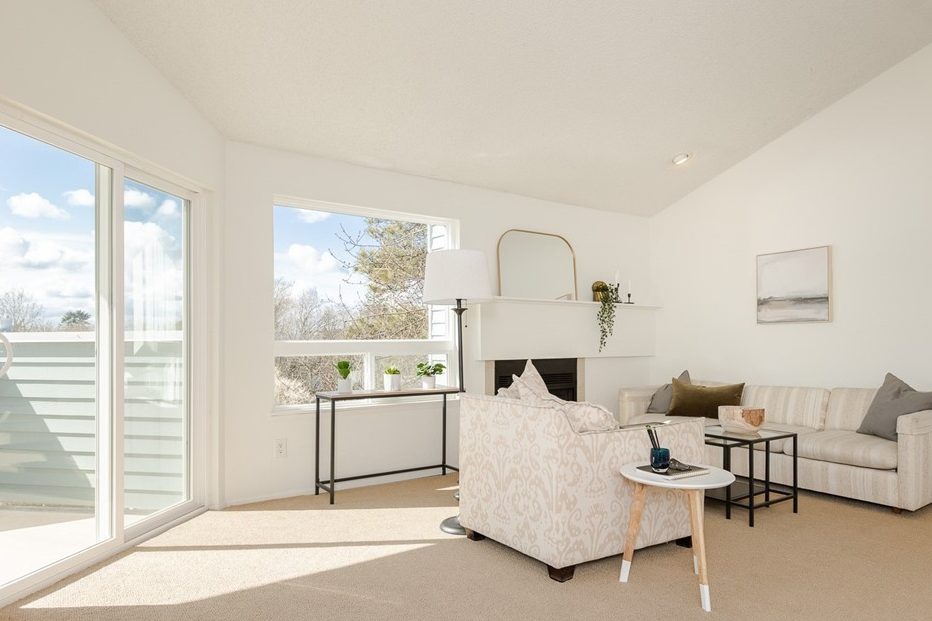Disclaimer: this blog post is entirely true, but also entirely anecdotal and should not be used as financial advice. For financial advice, I recommend looking at quantitative statistics and analyzing trends.

Here’s my condo story: I owned and rented out a unit in the top floor of a beautiful, older building. The roof was leaking into my unit for years. I informed the HOA, my neighbors complained to them, and even other members of the HOA raised the issue in meetings for me to the rest of the board. Unfortunately, I was never able to get them to fix it until a new president was elected. By this point, the side of the building appeared to be sinking a little, and the roof was no longer lined up as it should have been. As soon as my renters (of 7 years!) moved out, I was able to really get in there and see the extent of the damage and repair what I was allowed to. Tearing out the drywall was how I got the photos to finally prove to the HOA that there was an issue.
I did some research on what happens when a condo building is basically totaled (like a car) and the repairs are expected to exceed the value of the building. There are a few options in this case, but it seems that more often than not, the dues and special assessments just keep increasing to the point that everyone wants out. Once no one can afford the assessments and dues, the situation becomes very complicated legally.
Condos didn’t become popular until the 1960’s or 1970’s, so most of the condo buildings out there haven’t quite reached “end of life” yet, but there are some examples of severely damaged condo buildings from erosion or fire. My building was far from that point, but I did not want to assume that the roof leak into my unit was the only issue. I also didn’t expect that to be the only major issue with the building going forward. This was a risk I decided I was unwilling to take.
As soon as the leak was repaired, I sold the condo. I had lost trust in the building and so I passed my unit on for a good price to someone happy to take the risk. It was a beautiful home in a fabulous neighborhood for the right person. If I was living there myself, I would have kept it. It would have been more than an investment and the risk would have been totally worth it.
In summary, condos can be great if you are sure the building is structurally sound. Even if it’s an older, imperfect building, there can be times it could still be a good purchase. If you’ve fallen in love with a condo unit, that home may have features that are worth the potential financial risk of allowing others to share responsibility for maintenance. But don’t forget, there is a financial risk in all real estate purchases, and (I believe) a little extra financial risk in aging condominiums.
PS. unless there are more than 100 units, I personally avoid investing in condos with in-ground pools. I only needed to know of one horror story about my best friend’s condo to come to that conclusion.
If you’d like to read a more in-depth article about aging condos in the US, here’s a good one that I just read after writing this blog post!
Do you have any condo horror stories to share with readers? Go ahead and comment below!

Leave a Reply
You must be logged in to post a comment.